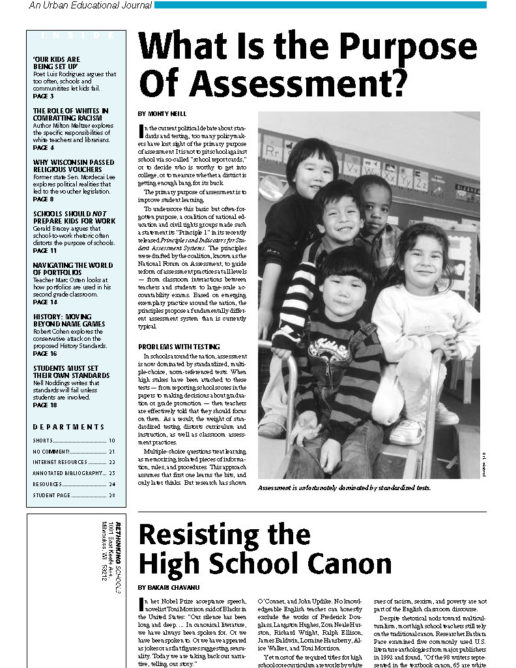Preview of Article:
Louis Gerstner’s Double Standards
From Coaxing Smokers to Nurturing Students
At the national education summit, IBM chief Louis Gerstner behaved as the self-proclaimed pope of education. Not long before, he was chief executive of a cigarette company.

